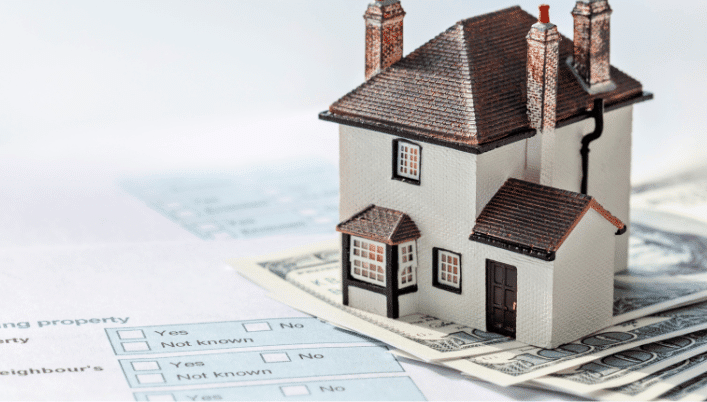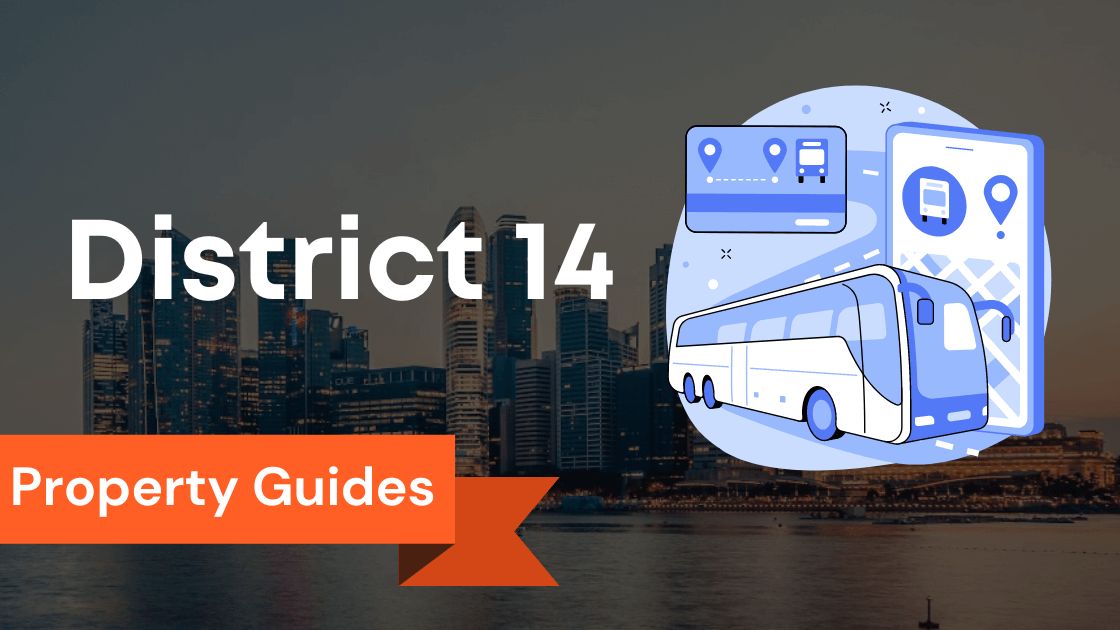Discover District 19 Singapore Condos in Hougang, Punggol, and Sengkang | Your Guide to D19 Singapore Property in Serangoon Garden
Introduction to District 19 Singapore District 19 Singapore is a vibrant and highly sought-after...
Explore District 18 Singapore Property for Sale: Pasir Ris, Tampines Condos at the Best Price – Research and Square Footage
Introduction to District 18 Singapore Situated in the eastern part of Singapore, District 18 is a...
Explore District 17 Singapore Property: Changi Airport Condos for Sale in Changi Village | Find Top Property Listings and Prices
Introduction to District 17 Singapore District 17 Singapore, located in the eastern part of the...
Explore District 23 Singapore: Bukit Batok, Choa Chu Kang, Bukit Panjang, and Dairy Farm | Landed Property and Condos for Sale in D23 | Condo Directory
Discover District 23 Singapore – a vibrant, diverse oasis in the west. Bukit Batok, Bukit Panjang,...
Sale in District 22: Exploring Jurong and Tuas, Boon Lay, Condo Directory, and Condos for Sale in Singapore
Explore the vibrant tapestry of District 22 Singapore, a captivating fusion of residential,...
Discovering the Charm of District 21 in Singapore: A Comprehensive Neighbourhood District Guide in Upper Bukit Timah and Clementi
Step into the enchanting world of District 21 Singapore, where vibrant urban living meets the...
House and Condo for Rent and Sale in District 16 Singapore – Find Your Ideal Property in Bedok and Upper East Coast | Price and Rental
Overview of District 16 Singapore and its popular neighborhoods District 16 Singapore, located in...
Explore District 15 Singapore: Find East Coast Condos and Properties for Sale in Marine Parade | Condo Sale in District 15
District 15 in Singapore is a highly sought-after residential area on the island's eastern coast....
Discover the Charm of District 14 Singapore: Paya Lebar, Geylang, Eunos Condos and More in the Vibrant Condo Directory
Situated in the heart of Singapore, District 14 is a vibrant and bustling area that offers a...
District 13 Singapore: Explore Property Rentals, Condos, and Apartments in the Area for Optimal Gain in Price Trends
District 13 Singapore is a vibrant and bustling area located in the eastern part of the country....
Comprehensive Guide to District 12 Properties: Find Apartments and Condos for Sale in Thomson, Novena, and Toa Payoh Singapore
Discover District 12 Singapore, where vibrant urban living meets convenience. From historical...
Unveiling the District 11 Singapore Property Landscape: Exploring Price Trends, Capital Gain, Apartment, Condos and Rental Yields
Welcome to District 11 Singapore, a captivating blend of urban vibrancy and serene living. Its...

Property taxes play a significant role in our society, providing a crucial source of revenue for local governments.
These taxes are levied on various types of property, including private property, and the payment is typically made to the county or other tax authorities.
In this article, we will explore the interplay between income tax and property tax, strategies for lowering your property tax bill through exemptions and deductions, the effect of rising market rents on property tax payments, the role of tax authorities in property tax collection, and the comparative analysis of wealth tax versus income tax in the context of property.
Key Takeaways
- Property Tax Basics: Property tax is a levy on the value of real properties, including residential and non-residential properties, collected by the government to fund public services.
- Tax Rate Calculation: Property tax rates, expressed as percentages, are determined by local authorities and applied to assessed property values.
- Factors Influencing Rates: Local factors such as market value, property type, and tax policies determine property tax rates, which are reviewed periodically.
- Calculation Process: To calculate property tax, multiply assessed property value by the tax rate as a decimal. Deductions and exemptions may apply, consult experts.
- Financial Impact: Property tax rate directly impacts owners’ financial burden. Higher rates can lead to increased tax bills, impacting budgeting for homeownership and investment.
- Annual Value Basis: Property tax is often calculated based on annual property value, considering factors like location, size, and condition.
- Residential Property Distinction: Different tax rates for owner-occupied and non-owner-occupied properties aim to encourage homeownership and discourage speculation.
- Singapore Property Tax: Property tax in Singapore is imposed by the Inland Revenue Authority, assessed on annual value, and helps fund public services.
- IRAS Role: IRAS administers property tax, assesses annual property value, determines rates, and provides assistance to property owners.
- Exemptions and Deductions: Understanding and utilizing property tax exemptions and deductions can reduce tax liabilities and optimize savings.
Understanding Property Taxes: A Comprehensive Overview

What are property taxes, and how do they work?
Exploring the concept of property tax
Property tax is a tax imposed on the value of real properties, including residential and non-residential properties.
It is typically collected by the government to fund various public services and initiatives.
The tax rate, which is expressed as a percentage, is applied to the assessed value of the property to determine the property tax payable by the owner.
Understanding how property tax rates are determined
Property tax rates are determined by the local authorities and can vary based on factors such as the market value of the property, the type of property, and local tax policies.
These rates are reviewed periodically and may be adjusted to meet changing economic conditions and revenue requirements of the government.
Calculating your property tax payable
To calculate your property tax payable, you need to know the assessed value of your property and the applicable property tax rate.
Multiply the assessed value by the tax rate (expressed as a decimal) to determine the amount of property tax you owe.
Keep in mind that there may be deductions and exemptions available, so it’s important to consult with a tax professional or the local tax authorities to ensure accurate calculations.
How does property tax rate impact your finances?

Evaluating the impact of property tax rate on property owners
The property tax rate plays a significant role in determining the amount of tax property owners have to pay.
An increase in property tax rates can lead to higher tax bills, which can have a direct impact on their finances.
It’s crucial for property owners to factor in property taxes when budgeting for homeownership or property investment.
Understanding the relationship between property tax and annual value
The property tax payable is often calculated based on the annual value of the property.
Annual value refers to the estimated gross annual rent a property can fetch if it were to be rented out.
It takes into account factors such as location, size, and condition of the property.
The property tax rate is then applied to the annual value to determine the property tax payable.
Navigating the changes in property tax rates for residential properties
Property tax rates for residential properties can vary depending on whether the property is owner-occupied or non-owner-occupied.
Owner-occupied residential properties generally have lower tax rates compared to non-owner-occupied properties, which are often subject to higher rates.
These distinctions aim to encourage homeownership and discourage property speculation.
Differentiating residential properties: owner-occupied vs. non-owner-occupied

What are owner-occupied residential properties?
Owner-occupied residential properties are homes that are occupied by the property owner.
These properties serve as the primary residence for the owners and are not rented out or used for commercial purposes.
Owner-occupied properties are generally eligible for certain tax benefits and exemptions.
Exploring the tax implications of non-owner-occupied residential properties
Non-owner-occupied residential properties, on the other hand, refer to homes that are not occupied by the owner and are typically used for rental or investment purposes.
The tax implications for these properties differ from owner-occupied properties as they are subject to higher tax rates and may be subject to additional taxes such as income tax on rental income.
Understanding the difference in property tax rates for owner-occupied and non-owner-occupied properties
The distinction in property tax rates for owner-occupied and non-owner-occupied properties is primarily aimed at encouraging homeownership and discouraging property speculation.
By offering lower tax rates to owner-occupied properties, governments incentivize individuals to secure property for their own use, thus promoting stability in residential neighborhoods.
Navigating the Singapore real estate tax landscape

Overview of property tax regulations in Singapore
In Singapore, property tax is a tax imposed on property owners by the Inland Revenue Authority of Singapore (IRAS).
It is levied on all properties, including residential, commercial, and industrial.
The property tax regulations are designed to ensure a fair and equitable tax system, taking into consideration factors such as the annual value of the property and the property’s use.
Understanding the role of IRAS in property tax administration
The IRAS plays a crucial role in the administration of property tax in Singapore.
Its responsibilities include assessing the annual value of properties, determining the applicable tax rates, and collecting the property tax payable.
The IRAS also provides information and assistance to property owners regarding their property tax obligations.
Exploring other taxes related to real estate in Singapore
In addition to property tax, there are other taxes related to real estate in Singapore.
These include the stamp duty, which is payable when purchasing or transferring properties, and the goods and services tax (GST), which may be applicable to certain types of real estate transactions.
It’s essential for property owners to be aware of these taxes and their implications.
Unveiling the concept of annual values in property tax calculation

What is the annual value of a property?
The annual value of a property refers to the estimated gross annual rent that the property can fetch if it were to be rented out.
It serves as the basis for calculating property tax payable and is determined by factors such as location, size, condition, and market trends.
The annual value provides a standardized measure of assessing the value of the property for taxation purposes.
How is the annual value determined?
The annual value is determined by the IRAS based on various factors, including rental market data, property attributes, and economic conditions.
The IRAS employs a systematic process to assess the annual value, taking into consideration both objective and subjective elements.
Property owners can refer to the IRAS website or seek assistance from tax professionals for more information on how annual values are determined.
Implications of annual value on property tax payable
The annual value of a property directly influences the property tax payable.
As the annual value increases, so does the property tax liability.
It’s crucial for property owners to monitor changes in the annual value of their properties to accurately estimate their property tax obligations and budget accordingly.
Income Tax and Property Tax: Interplay and Implications

The relationship between income tax and property tax
Income tax and property tax are both forms of taxation that individuals must comply with.
While income tax is levied on the income a person earns, property tax is based on the taxable value of the property they own.
Although they are separate types of taxes, they can have interrelated implications for taxpayers.
How income tax affects property tax
Income tax can indirectly affect property tax.
As a property owner’s income increases, they may find themselves in a higher tax bracket, which means they are subject to a higher income tax rate.
This can lead to a higher disposable income, enabling them to own higher-value properties, which in turn may result in higher property tax payments.
Strategies for minimizing the impact of income tax on property tax
One strategy to minimize the impact of income tax on property tax is to take advantage of applicable exemptions and deductions.
By understanding these provisions and strategically planning property ownership, individuals may be able to reduce their taxable income and, consequently, lower their property tax obligations.
Exemptions and Deductions: Strategies for Lowering Your Property Tax Bill
Understanding property tax exemptions
Property tax exemptions are provisions that reduce or eliminate the amount of tax an individual is required to pay on their property.
Exemptions may be granted for various reasons, such as using the property for specific purposes, such as residential or charitable.
Understanding the available exemptions is essential for maximizing property tax savings.
Determining if you qualify for property tax deductions
Property tax deductions are another way to lower your property tax bill.
These deductions allow taxpayers to reduce their taxable property value by subtracting certain expenses or costs associated with property ownership, such as mortgage interest, home improvements, or property-related taxes paid to other jurisdictions.
Tips for maximizing your property tax savings through exemptions and deductions
To maximize your property tax savings, it is essential to research and understand the applicable exemptions and deductions in your jurisdiction.
Consult with a tax professional or seek guidance from local tax authorities to ensure you take full advantage of these provisions and minimize your property tax liabilities.
The Rise of Market Rents: Analyzing its Effect on Property Tax
The relationship between market rents and property tax
Market rents refer to the prevailing rental rates for a specific type of property in a given area.
Since property tax is often based on the fair market value of a property, the rise in market rents can have a direct impact on property tax payments.
As market rents increase, the taxable value of properties also tends to rise, leading to higher property tax bills.
Analyzing the impact of rising market rents on property tax payments
The impact of rising market rents on property tax payments can be significant, especially for property owners in areas with substantial rental demand.
As the rental market heats up and rents increase, property values may also appreciate.
In turn, this can result in higher property tax assessments and subsequent property tax payments.
Strategies for coping with higher property tax due to increasing market rents
Property owners facing higher property tax bills due to increasing market rents may consider several strategies to cope with the additional financial burden.
These strategies can include negotiating property tax assessments, appealing assessments, and exploring tax-saving opportunities through exemptions and deductions.
It is crucial to work closely with tax authorities and seek professional advice to ensure compliance while minimizing tax liabilities.
Tax Authorities and Their Role in Property Taxation
Understanding the role of tax authorities in property tax assessment and collection
Tax authorities, often at the local or county level, play a vital role in property tax assessment and collection.
They are responsible for determining the property tax rates, assessing the taxable value of properties, and ensuring property owners fulfill their tax obligations.
How tax authorities determine property tax rates
Tax authorities use various methods to determine property tax rates.
These rates are typically based on a percentage of the assessed value of the property.
The rates can differ based on the property’s use, such as residential, commercial, or industrial, and are often set to meet the funding needs of essential public services, such as schools and infrastructure.
Tips for dealing with tax authorities when it comes to property tax matters
When dealing with tax authorities regarding property tax matters, it is essential to maintain open lines of communication and adhere to all legal requirements.
This includes timely payment of property taxes, accurate reporting of property details, and cooperation during property tax assessments or audits.
Seeking professional advice and understanding the local regulations can greatly assist property owners in navigating property tax matters.
Wealth Tax vs.Income Tax: A Comparative Analysis in the Context of Property
Comparing wealth tax and income tax in relation to property
Wealth tax and income tax are both forms of taxation that can affect property ownership and taxation.
However, they operate under unique principles.
While income tax is levied on the income a person earns, wealth tax is based on an individual’s total net worth, including all their assets, including property.
The implications of wealth tax on property ownership and taxation
The implications of wealth tax regarding property ownership and taxation depend on the jurisdiction and specific provisions.
In some countries or regions, wealth tax may result in additional taxation on property assets, particularly for individuals with high net worth or extensive property holdings.
Analyzing the advantages and disadvantages of income tax in relation to property
Income tax, when compared to wealth tax, offers advantages and disadvantages in the context of property.
Income tax is often calculated based on an individual’s income level, which means property owners’ tax liabilities may vary depending on their income.
This can provide opportunities for tax planning and minimizing property tax obligations.
Taxation on Properties: Local and Municipal Perspectives
Property taxes are an essential part of local and municipal governments’ revenue sources.
These taxes play a significant role in funding various public services, such as education, healthcare, and infrastructure.
Understanding the different types of property taxes, their structures, and rates is crucial for both property owners and residents.
What are the different types of property taxes?
Understanding structure and rates
Property taxes can be levied on various types of properties, including residential buildings, vacant properties, and personal property.
The structure and rates of property taxes vary across different jurisdictions, and they are usually determined by the government bodies responsible for tax collection.
Property annual review and assessment
Properties are subject to an annual review and assessment to determine their value for taxation purposes.
The assessment considers factors such as the property’s location, size, amenities, and condition.
This review helps ensure that property taxes are based on the current value of the property.
Property tax rebates and refunds
Property tax rebates and refunds may be available in certain situations.
For example, owner-occupiers may be eligible for tax rebates or lower tax rates compared to non-owner-occupiers.
Governments may also offer refund programs to assist low-income residents or provide incentives for specific property improvements.
How does property tax payment and refund process work?
Payment schedule and deadlines
Property tax payments are typically due on specific dates determined by the local or municipal government.
Failure to meet payment deadlines may result in penalties and interest charges.
It’s crucial for property owners to stay informed about the payment schedule and make timely payments to avoid any potential issues.
Process for tax refunds
If a property owner has overpaid their property taxes or is eligible for a refund, they must follow a specific process to claim the refund.
This process typically involves submitting documentation and applications to the relevant government agency.
Property owners should be aware of the refund procedures to ensure they receive any eligible refunds promptly.
Owner-occupier and non-owner-occupier tax rates
Owner-occupier tax rates are usually lower than those for non-owner-occupier properties.
This distinction aims to provide support for individuals or families who use their properties for residential purposes.
On the other hand, non-owner-occupier tax rates may be higher as they often involve properties used for investment or commercial purposes.
Comparing property tax systems in Singapore and Hong Kong
Differences in tax rates and structures
Singapore and Hong Kong have different property tax systems.
For example, Singapore has a progressive property tax rate structure, where the tax rate increases with the property’s value.
In contrast, Hong Kong follows a different approach with a flat tax rate based on the property’s annual rental value.
Government support schemes and subsidies
Both Singapore and Hong Kong have implemented support schemes and subsidies to assist property owners.
In Singapore, there are schemes like MediShield Life and premium subsidies to help ease the financial burden of healthcare costs.
Hong Kong offers various assistance programs to support property owners, including tax deductions and rates concession for eligible individuals.
Implications for residential property owners
Differences in property tax systems can have significant implications for residential property owners.
They need to understand the tax rates and structures in their respective jurisdictions to effectively manage their property-related expenses.
It’s essential to consider these factors when making decisions related to property ownership or investment.
Is progressive property tax rate a fair approach?
Understanding wealth distribution
A progressive property tax rate is one that increases as the property’s value increases.
This approach aims to achieve a fairer distribution of wealth and reduce income inequality.
By taxing higher-value properties at a higher rate, governments can generate additional revenue while ensuring that those who can afford it contribute proportionately.
Impacts on different property owners
The progressive property tax rate can have varying impacts on different property owners.
While it may result in higher tax payments for owners of high-value properties, it can also offer relief to lower-income or mid-range property owners.
The overall impact depends on factors such as property value, location, and the specific tax rates implemented by the government.
Social support schemes and tax reforms
To address concerns related to the progressive property tax rate, governments often implement social support schemes and tax reforms.
These schemes may include tax credits, exemptions, or targeted assistance programs to alleviate the tax burden for specific groups of property owners.
Tax reforms aim to strike a balance between revenue generation and social equity.
How property tax audits work?
Role of tax assessors and collectors
Property tax audits involve the role of tax assessors and collectors.
Tax assessors are responsible for reviewing and assessing properties to determine their taxable value.
Tax collectors, on the other hand, are in charge of collecting property taxes from property owners based on the assessed value.
Process of reviewing and assessing properties
The process of reviewing and assessing properties for tax purposes typically involves evaluating factors such as the property’s size, location, use, and condition.
This assessment ensures that property taxes are calculated accurately and fairly based on the property’s current value and other relevant factors.
Auditing frequency and implications
The frequency of property tax audits varies across different jurisdictions.
Some governments may conduct periodic audits to ensure compliance, while others may focus on specific properties or situations.
Property tax audits can have implications for property owners, including potential adjustments to the assessed value and corresponding changes in tax obligations.
Conclusion
Are you ready to unravel the mystery of property taxes and gain insight into this crucial aspect of real estate ownership? Dive into our comprehensive guide that demystifies property taxes, providing you with a clear understanding of their intricacies and implications.
Whether you’re a homeowner, an investor, or simply curious about the world of property taxation, this engaging exploration will equip you with the knowledge you need to make informed decisions.
Explore the Foundations: Property Tax Basics
Embark on a journey to grasp the fundamental concepts of property taxes.
Delve into the definition and purpose of property taxes, uncovering their role in funding essential public services and community initiatives.
Discover how property tax rates are determined, and gain insight into the factors that influence these rates in your local area.
Calculate with Confidence: Navigating Property Tax Calculations
Navigate the intricate world of property tax calculations with ease.
Learn how to determine your property tax payable by understanding the assessed value of your property and the applicable tax rate.
Uncover the strategies to maximize your savings through deductions and exemptions, ensuring you’re not paying a penny more than necessary.
Beyond the Numbers: The Impact on Your Finances
Unravel the relationship between property tax rates and your financial well-being.
Gain a deep understanding of how these rates can directly affect your pocketbook and financial planning.
Discover invaluable strategies to mitigate the impact of property tax increases and optimize your property ownership experience.
Unveil the Enigma: Annual Values in Property Taxation
Peel back the layers of the annual value, a critical element in property tax assessment.
Grasp how the annual value is determined and how it influences your property tax payable.
Uncover the implications of changes in the annual value, and learn how to monitor and manage this key component of property taxation.
Unlock the Puzzle: Interplay Between Taxes
Embark on a journey to explore the intricate interplay between property tax, income tax, and wealth tax.
Understand how these different forms of taxation intersect and impact your property ownership and financial decisions.
Gain insights into strategies for optimizing your tax position while achieving your financial goals.
Navigate the Labyrinth: Tax Authorities and Property Taxation
Demystify the role of tax authorities in the world of property taxation.
Discover how these governmental bodies determine property tax rates, assess property values, and enforce compliance.
Equip yourself with the tools and knowledge to engage effectively with tax authorities and navigate property tax matters confidently.
Join us on this captivating exploration of property taxes, where complex concepts are unraveled and made accessible.
Whether you’re a seasoned investor, a curious homeowner, or someone looking to understand the tax landscape better, our guide will empower you to make informed decisions and navigate the world of property taxation with confidence.
Get ready to uncover the secrets behind property taxes and embark on a journey toward financial empowerment.
Frequently Asked Questions
What are property taxes?
Property taxes are taxes levied on the value of immovable property, such as land and buildings.
These taxes are typically paid to the local government or municipality and are based on the assessed value of the property.
How is property tax calculated?
Property tax is calculated by multiplying the assessed value of the property by the annual property tax rate.
The assessed value is determined by the local government or municipality, and the tax rate is set based on various factors, including the class of property and the applicable tax rates for owner-occupied residential and non-owner-occupied residential properties.
What is the difference between owner-occupier tax rates and non-owner-occupier residential tax rates?
Owner-occupier tax rates are the tax rates applied to properties that are occupied by the owner as a primary residence.
Non-owner-occupier residential tax rates, on the other hand, are the tax rates applied to properties that are not occupied by the owner and are used for residential purposes.
Do all properties in Singapore have to pay property taxes?
Yes, all properties in Singapore are subject to property taxes, regardless of whether the property is owned by an individual or a company.
The tax is levied based on the assessed value of the property and is payable annually.
What types of property tax exist?
There are several types of property taxes, including municipal property tax, real estate taxes, property transfer tax, common property assessment, and motorized vehicles property tax.
Each type of tax serves a specific purpose and is levied based on different criteria.
Can I review the assessment of my property for property tax purposes?
Yes, property owners have the right to request a review of their property’s assessment for property tax purposes.
This can be done through the local government or municipality, and the assessed value may be adjusted based on the review.
Are property taxes the same throughout the country?
No, property tax rates can vary from one jurisdiction to another.
Each local government or municipality has the authority to set its own property tax rates, within the limits set by the federal government.
Are property taxes a progressive tax?
Property taxes are generally considered to be a progressive tax, as the tax amount increases with the value of the property.
Higher-value properties tend to have higher property tax liabilities compared to lower-value properties.
Can I pay no property tax?
In most cases, property owners are required to pay property tax on their properties.
However, there may be certain exemptions or rebates available for specific circumstances, such as properties used for charitable purposes or properties owned by certain types of organizations.
It is best to consult with local authorities or tax professionals for specific information regarding exemptions or rebates.
How can I lower my property tax liability?
While property tax rates are set by the local government or municipality, there may be certain actions you can take to lower your property tax liability.
Some common strategies include appealing the assessed value of your property, applying for any available property tax exemptions or rebates, and investing in energy-efficient upgrades that may qualify for tax incentives.
Consulting with a tax professional can help you determine the best approach based on your specific circumstances.













